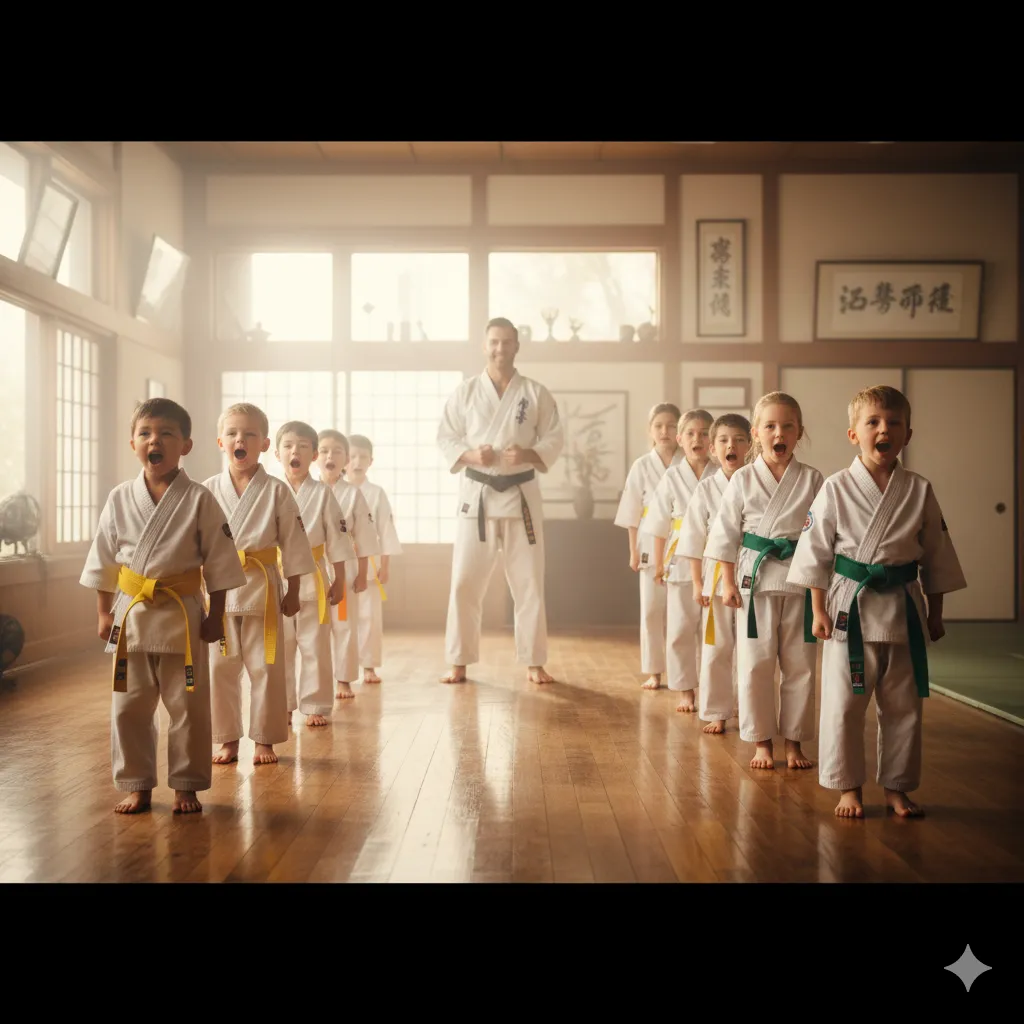
Why Respect is the First Lesson in Martial Arts
"When you are learning about a martial art, it's about respect.” - Jackie Chan
When parents enroll their children in martial arts, many expect their kids to learn kicks, punches, and self-defense. While those skills certainly come, the very first lesson students encounter isn’t about striking at all, it’s about respect. From the first bow on the mat to the way students address instructors and peers, martial arts emphasizes manners, gratitude, and humility as the foundation for every other lesson.
Respect is not just a formality in martial arts; it’s a way of life. And for kids, learning this lesson early can create a ripple effect that extends to school, friendships, and even family life. Let’s explore why respect comes first and how it shapes students both on and off the mat.
1. The Meaning Behind the Bow
The very first thing students learn when stepping into the dojo or training studio is how to bow. While it might seem simple, this gesture carries deep meaning. A bow is a sign of respect, for the art, the instructor, and fellow students.
For children, it’s often their first experience with a ritual that requires mindfulness and intention. Bowing before class reminds them that they are entering a space of learning, discipline, and growth. It sets the tone: here, we treat others (and ourselves) with respect.
2. Manners in Action
In martial arts, phrases like “Yes, sir” or “Yes, ma’am” are part of the culture. Students are taught to respond politely, listen attentively, and follow directions respectfully. Over time, this behavior becomes second nature.
Parents often notice the change at home, too. Children who may have been reluctant to say “please” and “thank you” start applying those courtesies without reminders. Martial arts reinforces these small acts of kindness and respect until they become habits.
3. Respect for Teachers = Respect for Learning
Respect in martial arts isn’t just about politeness, it’s about valuing the role of a teacher. Students quickly understand that their instructors guide them not only in techniques but in life skills. By showing respect to their instructors, kids develop an appreciation for learning itself.
This attitude carries over into school. Many parents and teachers notice that martial arts students show greater patience, better listening skills, and more willingness to follow classroom rules, all because they’ve internalized the importance of respecting authority and the learning process.

4. Gratitude and Humility
Martial arts also teaches students to respect their own progress. Kids learn to celebrate their accomplishments, whether it’s mastering a new kick or earning a new stripe on their belt. But just as important, they’re reminded to remain humble, thank their instructors, and encourage their peers.
This balance between pride and gratitude is powerful. It helps children grow confident without becoming arrogant and teaches them that real strength comes with kindness.
5. Respect Beyond the Dojo
Perhaps the most valuable part of martial arts training is how respect extends far beyond the mat. Children begin to carry these lessons into everyday life:
At home, they may speak more kindly to siblings and show appreciation to parents.
At school, they demonstrate good manners with teachers and peers.
In friendships, they learn to treat others fairly and stand up for those who aren’t treated with respect.
In essence, martial arts equips kids with respect as a lifelong skill, something that will serve them in every relationship and environment they encounter.
Why Respect Comes First
By teaching respect before any physical technique, martial arts ensures that students understand the responsibility that comes with their training. With respect as the foundation, every kick, punch, and block is grounded in self-control and purpose.
For parents, this is the greatest gift martial arts can give: children who are not only physically active and confident but also kind, polite, and grateful.
Final Thought
When you think about what your child might gain from martial arts, remember this: the first lesson is the most powerful one. Respect shapes character, builds discipline, and creates the type of young leaders who succeed not just in martial arts, but in life.
